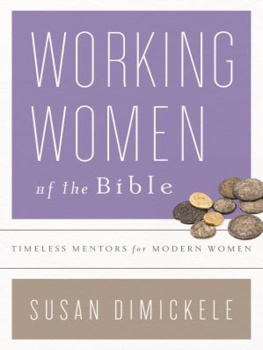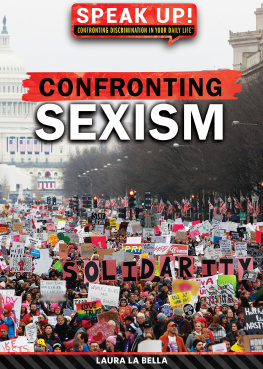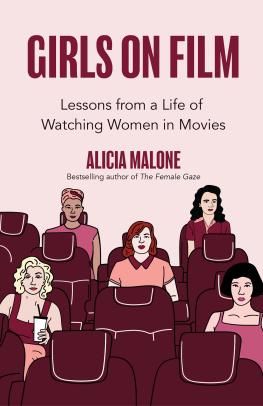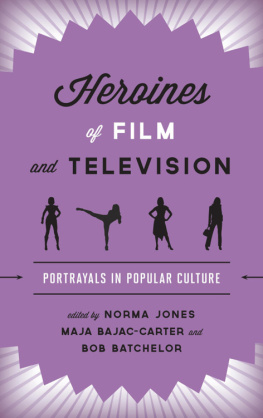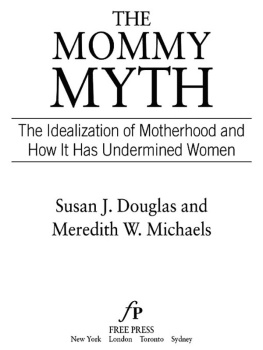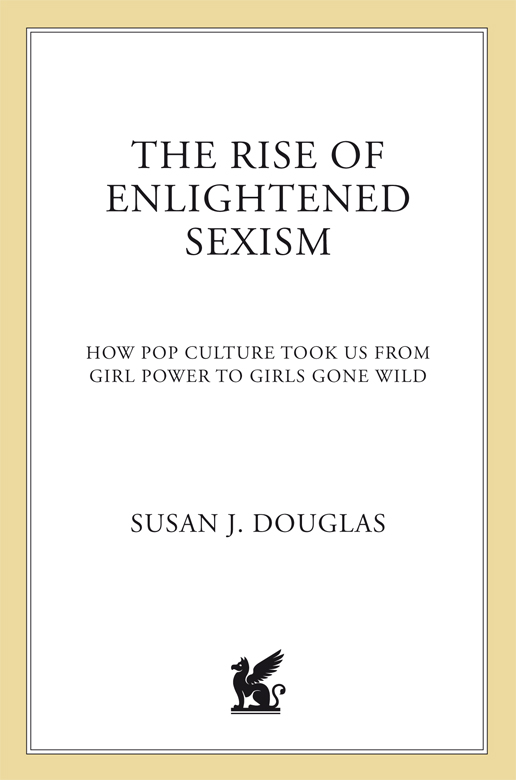For Paul Golob
and for Ella and her generation
CONTENTS
INTRODUCTION
FANTASIES OF POWER
Spring 1997. It is 8:12 A.M. Saturday. The feminist mom, who looks like she just got shot out of a wind turbine and has a cheap chardonnay hangover, is making pancakes for four eight-year-old girls who have had a sleepover party. Lets just say that shes not in the most festive mood. Then, blasting from the other room, she hears what had become the faux-rap anthem of that spring: Ill tell ya what I want, what I really really want She peeks around the corner to see the four girls singing and dancing with abandon, sucking in girl power with every breath. At that instant, she saw the postfeminist zeitgeist that would envelop her daughters generation and wondered: Should she be happy that theyre listening to bustier feminism instead of watching Barbie commercials on Saturday morning TV? Or should she run in, rip the CD out of the player, and insist that they listen to Mary Chapin Carpenter or Ani DiFranco instead?
This was the Spice Girls moment, and debate: Were these girly, frosted cupcakes really a vehicle for feminism? And how much reversion back to the glory days of prefeminism should girls and women accepteven celebrategiven that we now allegedly had it all. Despite their Wonderbras, bare thighs, pouty lips, and top-of-the-head ponytails (of the sort favored by Pebbles on The Flintstones ), the Spice Girls nonetheless advocated girl power. They demanded, in their colossal, intercontinental hit Wannabe, that boys treat them with respect or take a hike. Their boldfaced liner notes claimed that The Future Is Female and suggested that they and their fans were Freedom Fighters. They made Margaret Thatcher an honorary Spice Girl. Were freshening up feminism for the nineties, they told the Guardian . Feminism has become a dirty word. Girl Power is just a 90s way of saying it. They proclaimed that New Age feminism meant you have a brain, a voice and an opinion. And hot pants. Hmmm.
Fast-forward to 2008. Talk about girl power! One woman ran for president and another for vice president. Millions of women and men voted for each of them. The one who ran for vice president had five children, one of them a four-month-old infant, yet it was verboten to even ask whether she could handle the job while also tending to a baby. (Other issues, like whether she ever read a newspaper or really could see Vladivostok from her window seemed a tad more pressing.) At the same time we had a female secretary of state, and the woman who had run for president became her high-profile successor. There were female CEOs, a woman anchoring the CBS Evening News , and female attorneys, surgeons, police chiefs, and judges all over dramatic TV. On reality TV shows like Survivor , female contestants battled fire ants and iguanas the size of golf carts right alongside the men. Remember when Ellen DeGeneres came out in 1997, supposedly scandalizing a nation and then having her sitcom canceled? By 2008 she and Rachel Maddow hosted their own talk shows and it was no big deal at all; in fact, millions of us loved them, and DeGeneress wedding to her girlfriend was splashed all over the cover of People just like that of any straight celeb.
Feminism? Who needs feminism anymore? Arent we, like, so done here? Okay, so some women moaned about the sexist coverage of Hillary Clinton, but picky, picky, picky.
Indeed, eight years earlier, career antifeminist Christina Hoff Sommers huffed in her book, The War Against Boys: How Misguided Feminism Is Harming Our Young Men , that girls were getting way too much attention and, as a result, were going to college in greater numbers and much more likely to succeed while boys were getting sent to detention, dropping out of high school, destined for careers behind the counter at Arbys, and so beaten down they were about to become the nations new second sex. Other books like The Myth of Male Power and The Decline of Males followed suit, with annual panics about the new crisis for boys. Girl power? Gone way too far.
So wait a minutein 1999, one year before Sommerss book came out, the top five jobs for women were not attorney, surgeon, or CEO. They were, in order, secretaries, retail and personal sales workers (including cashiers), managers and administrators, elementary school teachers, and registered nurses. Farther down among the top twenty were bookkeepers, receptionists, cooks, and waitresses. Eight years later, in 2007, when presumably some of the privileged, pampered girls whose advantages over boys Sommers had kvetched about had entered the workforce, the top five jobs for women were, still, secretaries in first place, followed by registered nurses, elementary and middle school teachers, cashiers, and retail salespersons. Farther down the line? Maids, child care workers, office clerks, and hairdressers. Not a CEO or hedge fund manager in sight. And, in the end, not a president or vice president either. But what about all those career-driven girls going to college and leaving the guys in the dust? A year out of college, they earn 80 percent of what men make. And ten years out? Sixty-nine percent. And if girls and women really have come so far, and full equality has truly been achieved, why is it that K-Mart sells outfits for four-year-old girls that look like something out of Fredericks of Hollywood? Why did the Ladies Professional Golf Association (of all groups!) in 2002 feel compelled to call in hairstylists and makeup artists to enhance the players sex appeal? And why is it that pundits felt free to comment on Hillary Clintons cleavage but not John McCainswell, lets so not go there.
How do we square the persistence of female inequality with all those images of female power we have seen in the mediathe hands-on-her-hips, dont-even-think-about-messing-with-me Dr. Bailey on Greys Anatomy , or S. Epatha Merkerson as the take-no-prisoners Lieutenant Anita Van Buren on Law & Order , Agent Scully on The X-Files , Brenda Leigh Johnson as the chief on The Closer , C. C. H. Pounder on The Shield , or even Geena Davis as the first female president in the short-lived series Commander in Chief ? Advertisements tell women that they have achieved so much they should celebrate by buying themselves their own diamond ring for their right hand and urge their poor, flaccid husbands, crippled by an epidemic of emasculation and erectile dysfunction, to start mainlining Viagra or Cialis. Indeed, in films from Dumb and Dumber (1994) to Superbad (2007), guys are hopeless losers. In Sex and the City , with its characters who were successful professionals by day and Kama Sutra masters by night, there was no such thing as the double standard: women had as much sexual freedom, and maybe even more kinky sex, than men. Cosmo isnt for passive girls waiting for the right guy to find them; its the magazine for the Fun, Fearless Female who is also proud to be, as one cover put it, a Sex Genius. Have a look at O! The magazine is one giant, all-encompassing, throbbing zone of self-fulfillment for women where everything from pillows to celadon-colored notebooks (but only if purchased and used properly) are empowering and everything is possible. And why not? One of the most influential and successful moguls in the entertainment industry is none other than Oprah Winfrey herself.
Somethings out of whack here. If you immerse yourself in the media fare of the past ten to fifteen years, what you see is a rather large gap between how the vast majority of girls and women live their lives, the choices they are forced to make, and what they seeand dont seein the media. Ironically, it is just the opposite of the gap in the 1950s and 60s, when images of women as Watusi-dancing bimbettes on the beach or stay-at-home housewives who needed advice from Mr. Clean about how to wash a floor obscured the exploding number of women entering the workforce, joining the Peace Corps, and becoming involved in politics. Back then the media illusion was that the aspirations of girls and women werent changing at all when they were. Now, the media illusion is that equality for girls and women is an accomplished fact when it isnt. Then the media were behind the curve; now, ironically, theyre ahead. Have girls and women made a lot of progress since the 1970s? You bet. Womens college basketball, for exampleits existence completely unimaginable when I was in schoolis now nationally televised, and vulgar, boneheaded remarks about the players can get even a money machine like Don Imus fired, if only temporarily. But now were all district attorneys, medical residents, chiefs of police, or rich, blond, So-Cal heiresses? Not so much.


